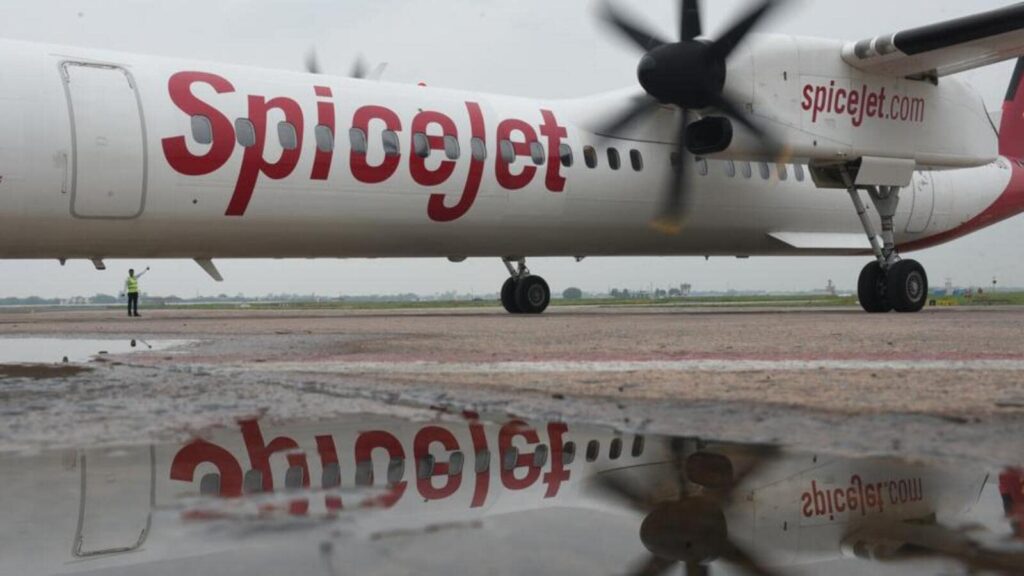SC affirms high court order to SpiceJet to return 3 leased aircraft engines

NEW DELHI: The Supreme Court on Friday upheld the Delhi high court’s directive requiring SpiceJet to ground and return three aircraft engines leased from French companies due to non-payment of dues, dismissing the airline’s appeal and suggesting that it independently negotiate with the lessors.

A bench, led by Chief Justice of India Dhananjaya Y Chandrachud, observed that SpiceJet was free to engage in negotiations with the lessors, Team France 01 SAS and Sunbird France 02 SAS, over the weekend, but refused to interfere with the high court’s September 11 order. The high court had directed the low-cost airline to ground three engines and return them within 15 days after SpiceJet failed to pay outstanding lease rentals.
“If you don’t comply, then you have to return the engines,” the bench, also comprising justices JB Pardiwala and Manoj Misra, warned during the hearing.
In response, SpiceJet informed the court that it was already in discussions to settle the payments and was prepared to pay immediately. The airline added that while two engines were already grounded, arranging a stand to return the engines would take at least a month, even though they were required to be handed over within 15 days.
But the bench refused to entertain the petition any further and affirmed the high court directive. It further observed that the airline was at liberty to approach the high court for modification of the deadline in appropriate proceedings.
The development follows a string of judicial decisions against SpiceJet.Earlier this month, a division bench of the Delhi high court declined to overturn a single judge’s August 14 order directing the grounding of the engines leased by the two France-based lessors. SpiceJet’s appeal was dismissed by the division bench comprising justices Rajiv Shakdher and Amit Bansal, which noted the airline’s repeated defaults in making payments and the accumulation of unpaid dues exceeding $20 million over more than two years.
The legal battle began in December last year when the lessors filed a case against SpiceJet, demanding payment and the repossession of the leased engines. The high court, in its September 11 order, upheld the directive to ground the engines, emphasising that the airline had breached an interim payment arrangement and triggered the contractual right of the lessors to reclaim their property. The court mandated that the engines be returned to the lessors by September 26.
The August 14 order, issued by a single-judge bench, initially required SpiceJet to ground the engines by August 16 and hand them over to the lessors. Following this, the division bench noted that SpiceJet had violated the terms of an interim payment agreement, which had stipulated that any breach would result in the grounding and repossession of the engines.
The high court’s rulings highlighted that further use of the engines without payment would diminish their value as depreciable assets, further harming the lessors’ interests. The division bench noted SpiceJet’s precarious financial situation, pointing to its conduct and submissions in court, where the airline acknowledged its efforts to secure funds through loans or equity infusions.
The bench also underscored the financial risks faced by the lessors, stating that continued delay or non-compliance could lead to a complete loss of both the engines and the outstanding payments. The high court stressed that preventing the lessors from exercising their contractual rights would be detrimental, given the airline’s evident financial distress and the uncertain prospect of monetary compensation.
Reacting to the development on Friday, SpiceJet said in an official statement: “SpiceJet is currently in discussions with the aircraft lessor to reach an amicable settlement. It is important to note that two of the three engines in question are already grounded, and our operations remain completely normal and unaffected. We remain committed to ensuring seamless operations.”




